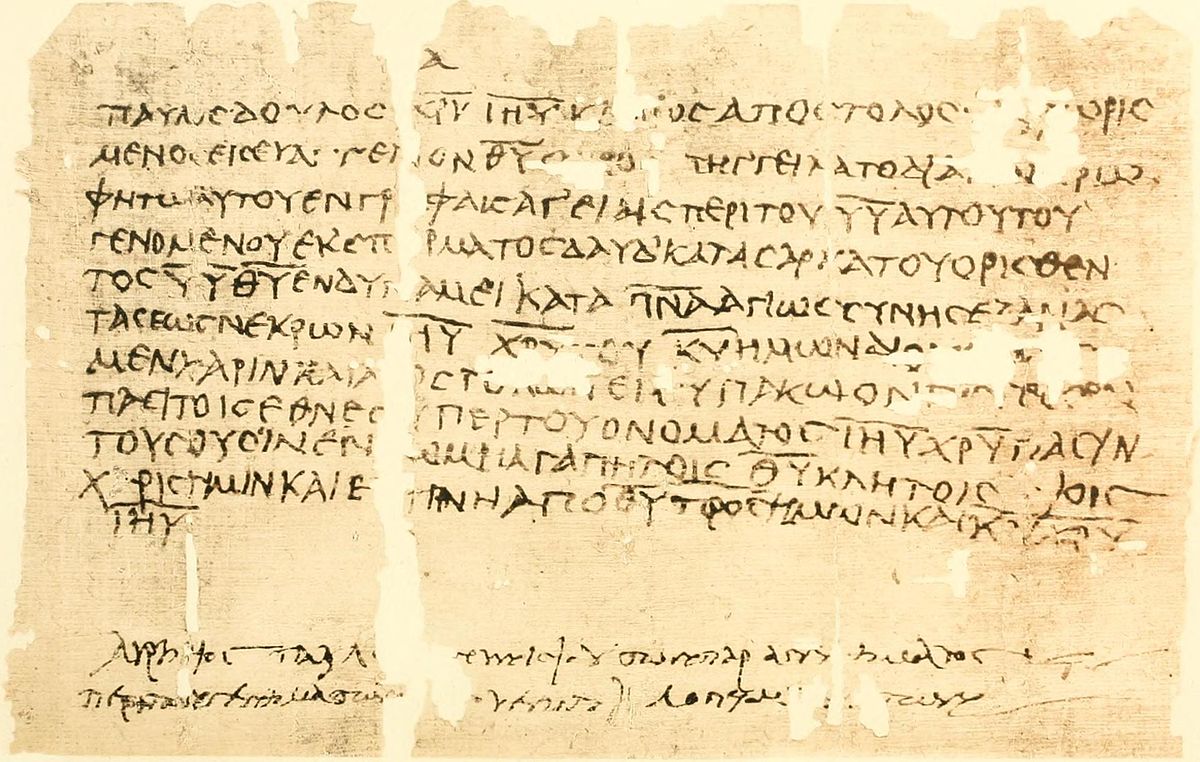“We have peace with God.” “We rejoice in our sufferings.” Which one is it, Paul? Or is this just another time when the Christian says yes to what seems to be two irreconcilable situations? Yes, because the irreconcilable is reconciled in Christ, man to God, peace to suffering, etc.
We tend to think of peace in the negative, don’t we? Peace means no war. Peace means no conflict. Peace means no tension. We think of the peace of the hippies. But God’s peace is infinitely more than the cessation of something. It is the giving of something. The Hebrews in the Old Testament did not only say “peace” to each other, but “shalom.” St. Paul was schooled in the Old Testament, and the New Testament springs from and fulfills the Old, and, for this reason, much can be drawn from St. Paul’s use of the word “peace.” The peace St. Paul talks about is wholeness, a renewal in our intended relationship to God and in his image. This relationship with God through Christ and renewal in his image in Christ cannot be taken away or compromised through suffering. Rather, through suffering we are able to identify all the more to the Suffering Servant who identified with our suffering by experiencing it as no one else ever has or will, by taking our place under the wrath of God, by severing his relationship with the Father, being forsaken, that our relationship with him might be repaired.
We not only have peace, but “peace with God through our Lord Jesus Christ.” This peace has brought us where we could never stand on our own: into God’s grace, having been given access through faith. No matter how our human relationships may suffer, no matter how our standing in this world may shift, our relationship with God has now been made whole and we stand planted firmly in the grace of God. When depressed, we have access to God. When confused, we have access to God. When overwhelmed, we have access to God. When broke, we have access to God. When betrayed, we have access to God. In all these situations and more, we have access to God, and not only access to God, but access to the God who has given his Son that we may have access to him, not in his wrath, but in his grace, who uses the trials and temptations of this life, brought by Satan, for our own good, strengthening the muscles of our faith as they are stretched and tested through earthly trouble.
No, we are not carried away to a trouble-filled and fluffy world of ease, but we are also never abandoned to the struggles we face. In our depression, we remember that God has pulled us out of depths before—out of hell itself—giving his Son for us to show how much he values us. When confused, we know that we don’t have to know all the answers, but that God does and has promised to work things for our benefit. When overwhelmed, we rejoice to know that there is no burden that Christ, who carried the sins of the world on his shoulders, cannot help us shoulder until its time has passed. In financial troubles, we know that we have treasures no moth or rust can destroy that no one can take and that our Lord himself walked this world with no home or wealth. When betrayed, we know that our Lord was betrayed as well, that he knows what we are feeling, and that he himself will never leave us nor forsake us. We can rejoice in suffering, because in suffering we have peace, not the peace that passes when conflict arises, but the peace that means the most precisely when conflict comes. We can rejoice in suffering, because, while suffering wears the unbeliever down, suffering builds the believer up, because we believe upon Christ, who is strongest in weakness, won his greatest victory in suffering, who uses our trials to teach us trust and build up the muscles of our faith.

